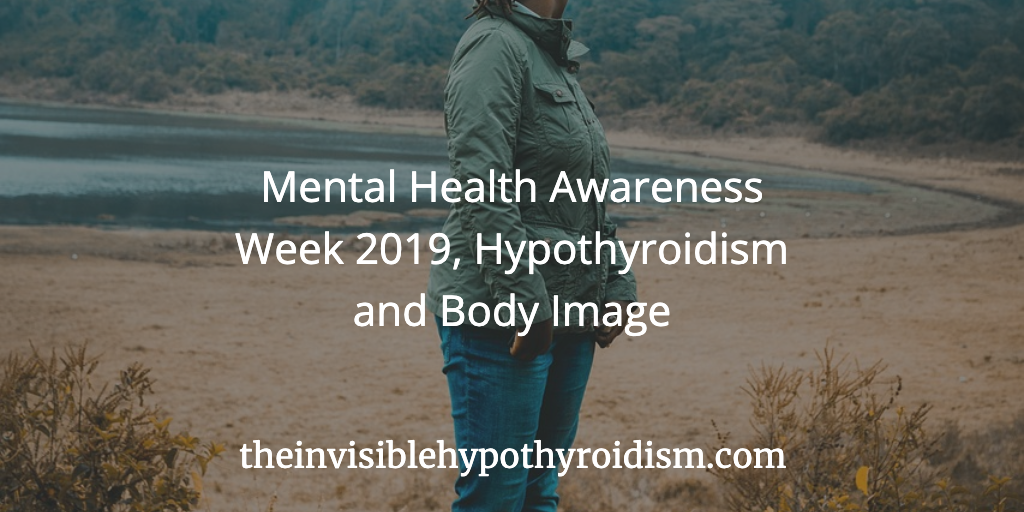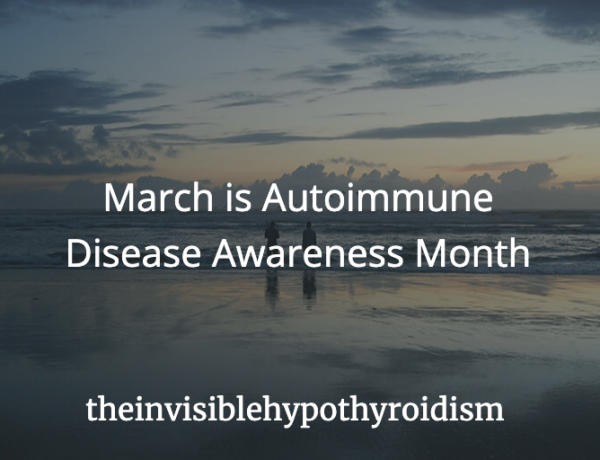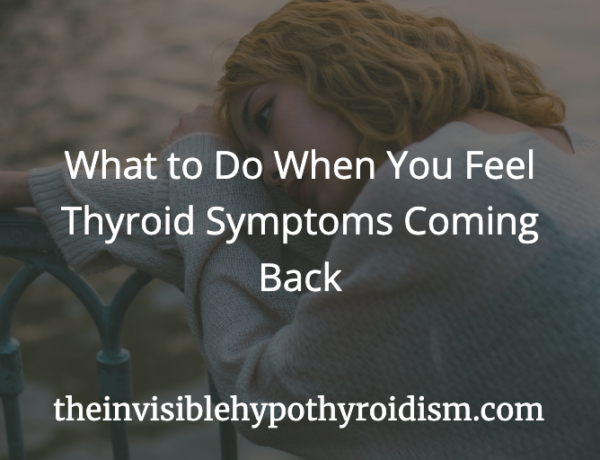TW: Mental Health, Depression, Body Image, Disordered Eating
Hosted by the Mental Health Foundation, UK Mental Health Awareness Week 2019 will take place from 13th to the 19th May 2019, with the theme for this year being ‘Body Image’, which looks at how we think and feel about our bodies.
(if you’re triggered by disordered eating discussions, you may wish to skip this article)
This week-long awareness event is a great opportunity to show your support towards better mental health, knowledge and awareness, and to learn how you can promote well-being in yourself and others too.
As thyroid patients also typically experience weight fluctuations as a common symptom of their thyroid condition, it is also important to hone in on that ‘Body Image’ topic within mental health.
Mental Health Conditions and The Thyroid
Mental health problems affect 1 in 4 people every year and if you have hypothyroidism, then this rises to 1 in 2 hypothyroidism patients being on antidepressants. [1]
I’ve written about mental health and thyroid disease many times on my blog, so I want to take today to link you to those all-important blogs and resources. The impact of thyroid conditions such as hypothyroidism on our mental health can be huge.
To understand how your poor mental health could actually be being caused by your thyroid health, please see this article: Mental Health and Your Thyroid and Adrenals
As always, I strongly believe that the link between thyroid conditions and mental health needs repeating until the general public and even doctors are aware of the importance. I always recommend that anyone with mental health struggles is screened for a thyroid condition, and once screened, we should ensure that our thyroid levels are optimal to rule it out as a cause for mental health conditions.
Many thyroid patients with anxiety and depression for example are experiencing these needlessly due to low Free T3 or T4 levels in particular, or low B12, Iron, Vitamin D etc. which often come hand in hand with it. Knowing to ask for these tests and that ‘in range’ is not the same as optimal, can make all the difference.
Body Image and The Thyroid
I know I’m not the only thyroid patient who has struggled with body image issues, especially with the infamous weight fluctuations. In fact, in 2018, I made the decision to put dieting, calorie counting, purging and everything else that came with my disordered eating/eating disorder to bed. And that was scary. It was hugely scary to admit that and put it out there publicly as well. After all, we’re told by society that so much of our worth is based on how we look and what dress size we wear. But this message is damaging.
Bodies come in all shapes, colours, abilities and sizes, and that’s normal and wonderful! As a thyroid patient with health conditions that affect how my metabolism works and body looks, I understand that it can be difficult to not panic when you see your body change due to it. Many of us even make our hypothyroidism worse by doing things like dieting and overexercising as a knee jerk reaction, which can actually make us more hypothyroid and place more stress on our bodies.
So what does disordered eating look like?
- Having so much concern over your weight, dieting and control of food that it impacts your day to day happiness, focus and it seems to dominate your thoughts.
- Having a preoccupation with weight, food, calories, carbohydrates, fat grams, and dieting etc.
- Skipping meals or having small portions of food regularly.
- ‘Punishing’ yourself for eating ‘too much’ by eating less the next day, doing even more exercise or bringing food back up.
- Frequent dieting.
- Extreme concern with body size and shape.
- Frequent checking in the mirror for perceived flaws in appearance, obsessive weighing on scales and use of measuring tapes.
- Feeling panic and fear when looking back at old photos or even current photos and assessing changes in appearance.
- Weight frequently going up and down.
- Binge eating.
- Digestive complaints.
- Menstrual irregularities.
- Tiredness, dizziness and difficulty concentrating due to lack of energy from food.
Essentially if your focus on weight loss or changing your body image is affecting your day to day life, impacting your mood, routines and overtaking your thoughts, you could well have an eating disorder or suffer from disordered eating (they’re essentially the same thing). Please reach out to your doctor, a therapist or other health professional for assessment and know that it actually isn’t that uncommon. I didn’t realise for years that my obsessions regarding weight, calories and body image were abnormal and detrimental.
These days, instead of focusing on this idea of ‘looking healthy’ by reaching a certain weight or size, I focus on ‘feeling healthy’. And it’s important to remember that a certain size or body shape doesn’t necessarily equal ‘healthy’ either. There are people who are very slim but unhealthy inside, and people who are larger but very fit. I was slimmer a few ago due to my eating disorder but was I healthier? I was tired all the time, had sleep issues, muscle aches and pains… it didn’t reflect how I felt inside. I’m somewhat larger in body size these days but I’m the healthiest I have been in years, as I eat a balanced, nutrient dense diet and exercise everyday in a healthy way.
Use This Awareness Week
If you can take a few minutes this week to check in on a friend, do something thoughtful for someone who needs it or educate yourself on mental health conditions, then please do. As someone who has a lot of experience with mental health conditions, I’m telling you we need to make more of an effort.
We need more people to be more aware of the effects of mental health and remove the stigma that stops so many people from talking about it.
If you’re struggling with your mental health right now, please know that it’s OK to talk about it, it’s OK to do things at your own pace, it’s OK to feel how you feel and it’s OK to ask for help. Whether you reach out to a friend, family member or local mental health charity, please know that you are not alone.
Have you experienced poor mental health with your thyroid condition?
You can click on the hyperlinks in the above post to learn more and see references to information given.
References:
[1] http://thyroiduk.org/tuk/campaigns/Patient-Expereince-Survey.html




